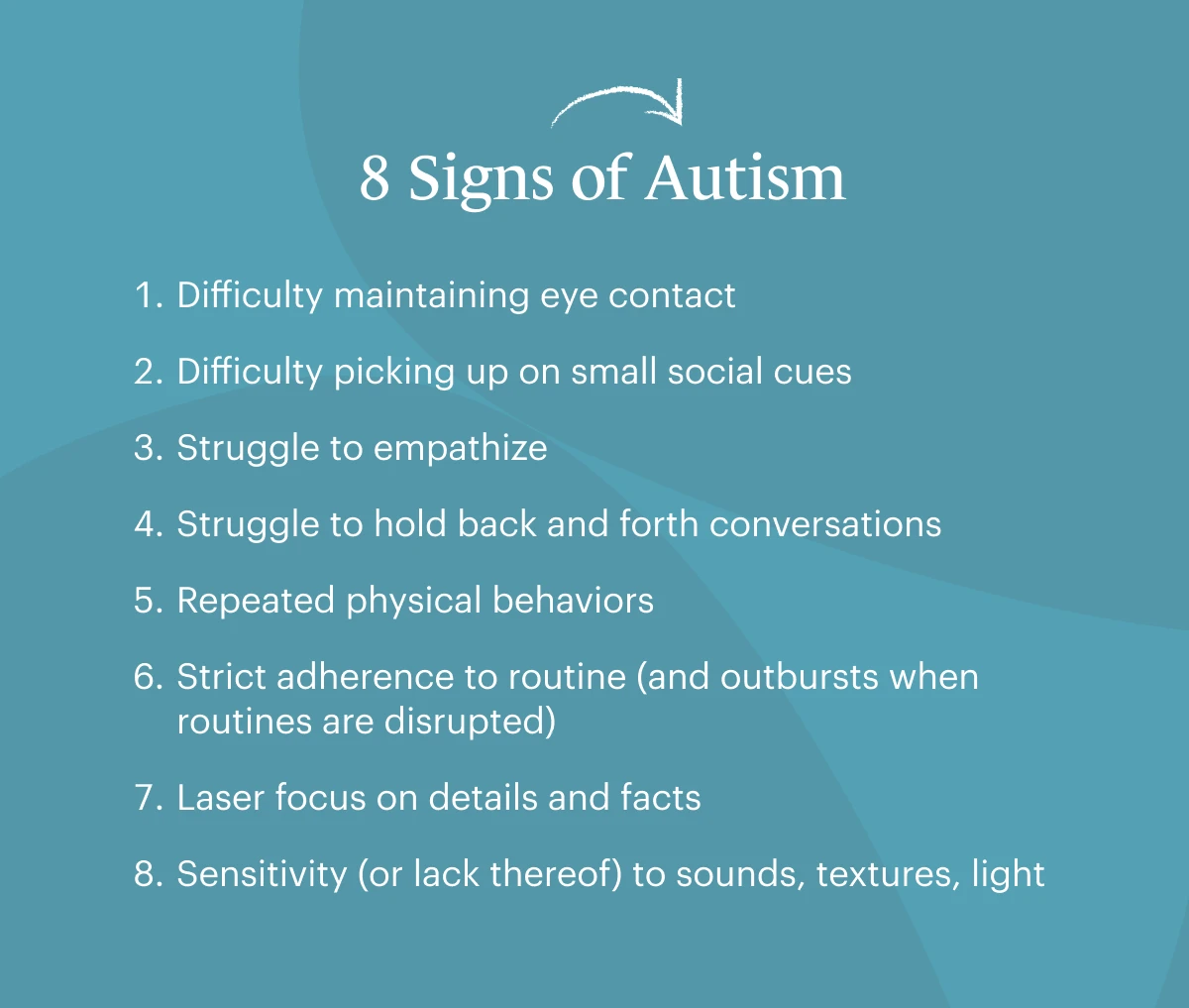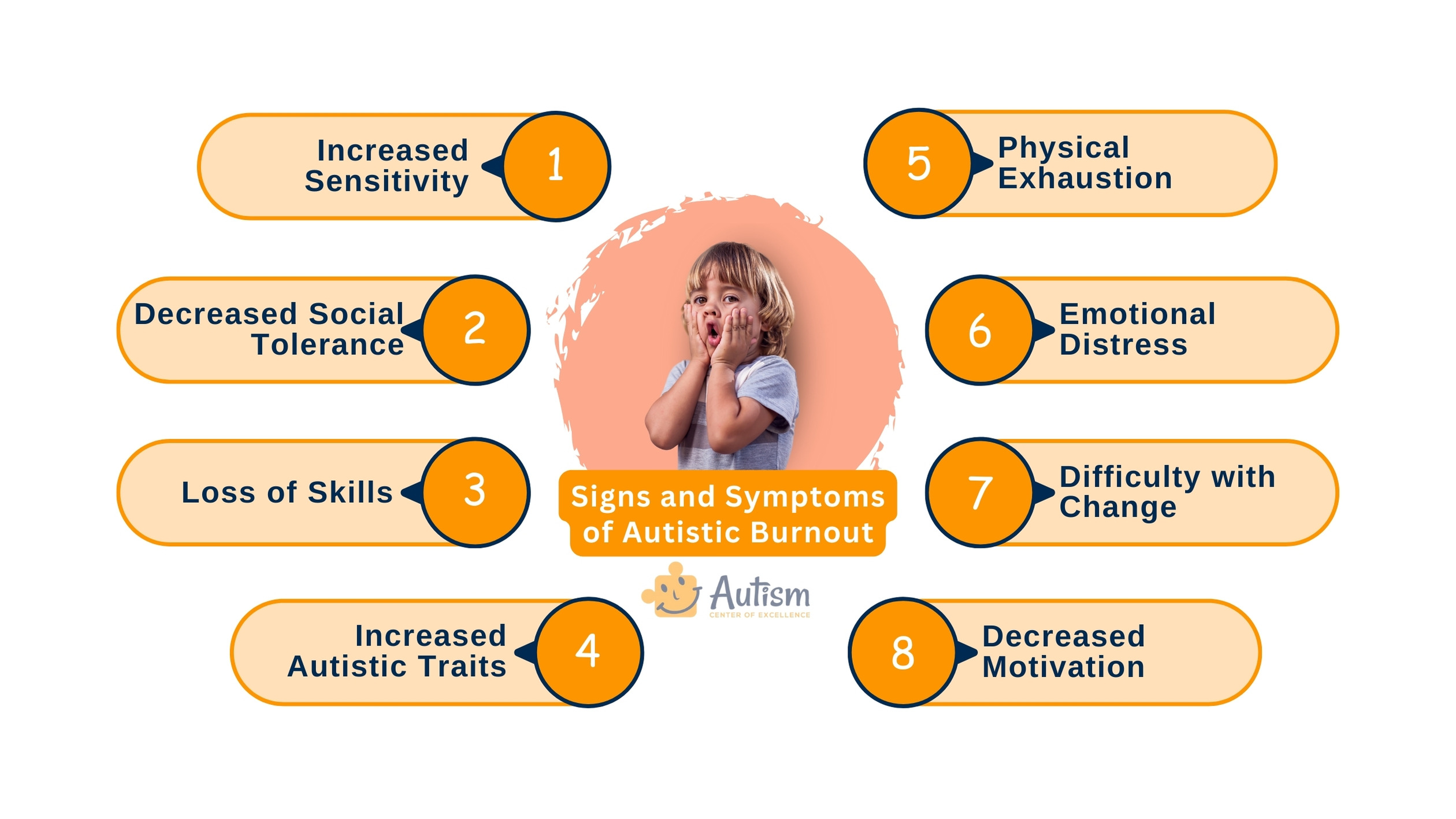When working with an Aba Therapist Near Me, your child may experience measurable progress in social and communication growth
When working with an Aba Therapist Near Me, your child may experience measurable progress in social and communication growth
Blog Article
Trick Indications and Signs And Symptoms to Identify in People With Behavioral Autism
When you come across somebody with behavioral autism, acknowledging crucial signs and symptoms is important. You may observe challenges in social interactions and interaction, along with a strong demand for routines. Additionally, sensory sensitivities can lead to frustrating experiences. Understanding these traits can boost your assistance and treatments, yet there's even more to discover about just how these habits materialize in everyday situations. Let's discover what these signs really resemble.
Difficulties in Social Interactions
When you connect with somebody on the autism spectrum, you could observe they fight with social signs and communication. These challenges can make social communications feel overwhelming for them. You may see them preventing eye contact or standing also close or as well far away throughout conversations, which can develop misconceptions. They could not detect body language or faces, making it harder for them to assess exactly how others are really feeling.
Additionally, you might find that they like routines and acquainted settings, which can restrict their willingness to take part in brand-new social situations. They might speak regarding their rate of interests in wonderful detail without discovering if you're interested when they do engage. This can lead to one-sided discussions that leave you really feeling disconnected. Recognizing these challenges can assist you come close to communications with compassion and patience, cultivating a much more comfy environment for both of you.
Problem With Verbal and Non-Verbal Communication

Non-verbal interaction can be a lot more tough. You could see a lack of eye call or limited usage of motions, which can make interactions really feel awkward. Faces may not always straighten with the discussion, causing confusion about their sensations. Acknowledging these indicators is crucial, as it assists you better assistance and engage with individuals on the autism range. By comprehending their interaction difficulties, you can cultivate much more purposeful connections and offer a more supportive atmosphere.
Recurring Behaviors and Regimens
Interaction challenges typically come with various other indications of autism, such as repeated habits and a solid preference for routines. You might see that people with autism often take part in certain, repetitive actions, like hand-flapping, rocking, or duplicating expressions. These behaviors can give convenience and a feeling of control in an usually overwhelming world.
When they follow an organized timetable,Regimens are just as vital; many individuals flourish. You may find that changes to these regimens can cause considerable distress. As an example, if they have an everyday ritual of eating breakfast at a particular time or complying with a certain course to school, any disturbance can create anxiousness.
Recognizing these patterns aids you recognize their actions and give support. By fitting their requirement for routine and allowing recurring activities, you can produce a much more comfy setting that eases their challenges.
Sensory Sensitivities

Typical Sensory Triggers
Sensory level of sensitivities can considerably affect day-to-day life for people with autism, as certain stimulations frequently trigger frustrating responses. Typical sensory triggers consist of loud sounds, bright lights, and solid smells. Recognizing these triggers can aid you manage your atmosphere better.
Behavior Reactions Explained
Recognizing your behavioral actions to sensory level of sensitivities is important, as they often disclose how you engage with the globe. You might discover that certain sounds, lights, or textures overwhelm you, bring about stress and anxiety or pain. When faced with these stimulations, you could take out, cover your ears, or even respond aggressively. These actions aren't just quirks; they're your means of managing overstimulation. You might also discover yourself looking for details sensory experiences, like deep stress or quiet settings, to assist ground yourself. Acknowledging these patterns aids you recognize your needs far better and can guide just how you interact them to others. By recognizing your sensory level of sensitivities, you can function towards producing a setting that feels extra manageable and comfortable for you.
Coping Approaches Summary
Acknowledging your sensory level of sensitivities is simply the first step; now it's time to explore coping methods that can aid you manage those experiences effectively. Start by developing a sensory toolkit customized to your needs. Developing an organized routine can also provide predictability, decreasing anxiety around sensory overload.
Restricted Interests and Emphasis
While several individuals establish a large range of passions, those with autism frequently show restricted interests and an extreme focus on details topics. You could observe that somebody with autism can invest hours diving into their favorite topic, whether it's a specific kind of train, my sources a specific motion picture, or a clinical concept. This extreme emphasis isn't simply a hobby; it can end up being a main part of their identity and social interactions.
You might find that discussions rotate around these interests, and they might battle to engage in wider subjects. By understanding and acknowledging these limited passions, you can foster an encouraging environment where they feel valued and recognized, enabling for even more purposeful connections and interactions.
Emotional Policy Problems
People with autism commonly encounter challenges in emotional policy, which can be influenced by their intense concentrate on details passions. You may observe that when an individual is deeply taken part in a recommended activity, they can experience strong emotions, whether exhilaration or stress. When points don't go as planned., this strength occasionally makes it difficult for them to shift gears or manage their feelings - Aba Therapist.

Irregularity in Developing Milestones
When it pertains to developing turning points, you'll notice that individuals with autism typically reveal a large range of variability. Some may hit milestones in a timely manner, while others could drag or progression at a various pace. You may see a child succeed why not check here in language skills however struggle with social interactions. This disparity can be complicated, as typical criteria do not always apply.
It's necessary to acknowledge that each person's journey is distinct. Some might establish complicated abilities early, just to encounter obstacles later. Others might take longer to accomplish basic milestones however then flourish in certain areas. Observing these patterns can assist you recognize their toughness and requires better.
Frequently Asked Concerns
Exactly How Is Autism Diagnosed in Kid and Grownups?
To identify autism in adults and children, specialists review actions, communication skills, and social interactions. They typically use standard tests, interviews, and monitorings to identify if an individual meets the criteria for autism range condition.
Are There Various Kinds Of Autism Range Disorders?
Yes, there are different kinds of autism spectrum problems, including Asperger's disorder and prevalent developing disorder-not or else defined. Each kind differs in extent and characteristics, so comprehending these differences can help you much better assistance people with autism.
What Treatments Work for Individuals With Autism?
When thinking about effective treatments for individuals with autism, you'll find options like Applied Behavior Analysis, speech treatment, and work-related treatment. Each technique can aid improve communication, social abilities, and everyday working customized to individual demands.
Can People With Autism Lead Independent Lives?
Yes, people with autism can lead independent lives. With the ideal assistance, skills training, and sources, you find out here now can assist them develop self-sufficiency, handle everyday jobs, and flourish in various atmospheres, promoting their independence.
How Can Families Support Enjoyed Ones With Autism?
You can sustain your loved ones with autism by producing a structured setting, motivating their rate of interests, exercising patience, promoting communication, and advertising social abilities. Commemorate their accomplishments, despite how little, and build an encouraging area.
Although lots of individuals on the autism spectrum can utilize and understand language, they usually face substantial obstacles with both non-verbal and verbal interaction. Acknowledging these indicators is necessary, as it assists you better assistance and involve with individuals on the autism spectrum. You might notice that people with autism typically involve in certain, repetitive actions, like hand-flapping, shaking, or repeating expressions.Sensory level of sensitivities can considerably affect daily life for people with autism, as certain stimuli frequently cause overwhelming responses.When it comes to developmental landmarks, you'll discover that people with autism often show a vast variety of variability.
Report this page